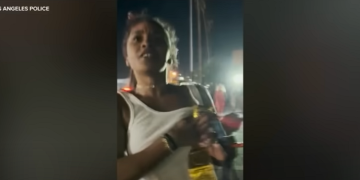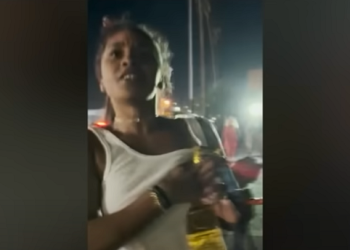
The Metropolitan Transportation Authority (MTA) board voted on May 23 to increase bus and rail fares by 25 cents beginning in September, but agreed to temporarily hold off on additional increases that had been proposed for 2017 and 2020.
The base fare for Metro buses and trains will increase from $1.50 to $1.75 in September under the 12-1 vote, but passengers will be given two hours of free transfers. Los Angeles County Supervisor Gloria Molina was the lone dissenter.
The vote came after an hours-long public hearing that included comments from more than 100 people, mostly in opposition to the fare increase.
The proposal originally called for fares to increase to $2 in 2017 and $2.25 in 2020, but the board agreed to delay a decision on those hikes pending further review.
Day pass fares will rise from $5 to $7 in September. Weekly passes, now $20, would go up to $25 by the fall, and monthly passes will rise from $75 to $100.
The board held off on raising disabled and senior citizen fares, which had been set to rise from 55 cents to 75 cents during peak hours in the fall.
The board next month will consider a proposal by Los Angeles City Councilman Mike Bonin to freeze the planned fare hikes for the disabled and seniors.
Student fares will stay the same for now. The board decided to wait until planned fare increases for students are reviewed by a task force created through a board vote today.
The board, which includes Mayor Eric Garcetti, five county supervisors and elected officials from municipalities around the region, voted to set up a “Transit Ridership Best Practices Task Force” and to create a “riders’ advocate” position.
Metro officials said the fare hikes are needed to erase a projected $36.8 million budget shortfall projected for 2016. The agency predicted the deficit could rise to $225 million over the next decade.
Although the base fare will be going up, Metro officials said many riders would still likely benefit from the new fare structure thanks to the inclusion of free transfers lasting for two hours. Riders currently pay a separate fare each time they board a different bus or train.
Opponents of the increase included members of the Bus Riders Union who said the fare hikes would be a financial hardship on Metro bus and rail users, 60 percent of whom earn annual household incomes of $15,000 a year.
“We can’t afford this fare increase,” Aracely Barboza, a member of the BRU, said. “We use these buses as lifelines to get to school, work, the grocery store and to visit our people in the hospital.”
A 92-year-old bus rider calling herself “Grandma Bus” addressed the board in Korean, saying through a translator that the increase would drive “homeless and poor people deeper into debt.”
Molina was unable to convince her colleagues to delay the fare increases. She said the board needs to “come to grips” with “startling figures” that show 80 percent of Metro bus riders are low-income, and 90 percent are minorities.
With an attempt to raise the minimum wage dying in Congress, “there is nothing in their lives going on today that tells them that they are going to have an extra 50 cents next week, or an extra $2,” Molina said.
She also said it would be unfair to compare Los Angeles fares with those in other areas.
“There is no other bus line in this country that has as dramatic a number of low-income, minority bus riders,” she said.
She asked her colleagues to consider cutting 1.5 percent of Metro’s operating budget to come up with funds to bridge the projected $36.8 million deficit in two years. Fellow board members responded that they would consider a separate motion telling staff to explore this idea.
Garcetti spoke in favor of going through with the fare increases proposed for September.
“One thing I’ll never do here is give people false hope,” he said. “I do feel that this coming year, we need this first step. That said, of the 28 different increases that were proposed to us, this motion rejects 24 of those categories.”





















